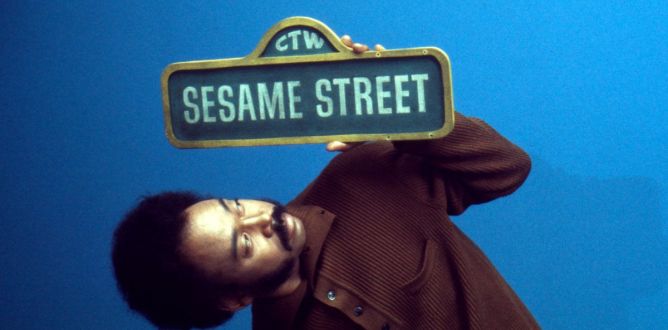Street Gang: How We Got to Sesame Street Parent Guide
Awash in nostalgia, this documentary will touch the hearts of adults who grew up watching "Sesame Street".
Parent Movie Review
If you’re under sixty years of age, chances are you spent at least part of your childhood glued to the TV, watching Sesame Street and chortling at the antics of Big Bird, Oscar the Grouch, Grover, Count von Count, Cookie Monster, and Ernie and Bert. (And if you didn’t watch it, your kids definitely did.) Within a few short years of its 1969 launch, this unforgettable cultural icon embedded itself in our hearts.
Street Gang: How We Got to Sesame Street uses interviews and archival footage to share the show’s history and explore the factors that turned educational TV into must-watch entertainment for generations of children. That history begins with Joan Ganz Cooney, a young television producer who wondered “what television would do if it loved people instead of trying to sell to people.” Bringing together television writers, educational experts, and Jim Henson’s Muppets, Ms. Cooney won funding from the Carnegie Foundation and the federal Department of Education to create a program that would help inner-city children bridge the educational gap with suburban youngsters. After three years of study, test episodes, and focus groups, Sesame Street hit the airwaves in November 1969.
What this documentary makes very clear is that Sesame Street succeeded for two reasons: it was created by a fanatically devoted group of people and those people were managed wisely. In particular, producer Jon Stone astutely put few limits on their slightly manic lunacy. It’s that hint of craziness that appealed to children in 1969 and continues to charm them today.
Sesame Street endures not only because of its zany moments, but because it respects children enough to deal with serious topics, whether it’s the death of a main character or a new Muppet with AIDS. As one of the show’s early composers, Joe Raposo says of his song, “It’s Not Easy Being Green”, which was acclaimed for its take on race but which also has a broader message: “The song addresses that one thing that’s at the kernel of our being. We’re not sure what we are or what we can be. We know there’s potential…to know that we can become something that we perhaps never dreamed that we could be. That’s what Sesame Street’s about.”
Despite its messages, Street Gang is not a kid’s show; it’s an exercise in nostalgia and curiosity for adult viewers. Kids will be bored by the long discussions of adult motivations, although they will perk up for the clips from the early years. As for adults, it’s an enormous amount of fun to watch Ernie and Bert squabble or see real, unscripted children interact with the Muppets. If you loved Sesame Street when you were young, this documentary will “sweep the clouds away” and take you back to “where the air is sweet”. After all, don’t we all want to “get to Sesame Street”?
Directed by Marilyn Agrelo. Starring Joan Ganz Cooney, Jim Henson, and Jon Stone. Running time: 107 minutes. Theatrical release April 23, 2021. Updated October 2, 2021Watch the trailer for Street Gang: How We Got to Sesame Street
Street Gang: How We Got to Sesame Street
Rating & Content Info
Why is Street Gang: How We Got to Sesame Street rated PG? Street Gang: How We Got to Sesame Street is rated PG by the MPAA for some thematic elements, language and smoking.
Violence: Muppets commit cartoonish violence, cutting parachutes, branding one another, hitting, hitting with clubs. A muppet throws a pie in another muppet’s face.
Sexual Content: None noted.
Profanity: There are fewer than a half dozen swear words, including a single scatological curse and term of deity as well as a few minor profanities.
Alcohol / Drug Use: An actor is smoking on set during rehearsal. A character on a children’s TV show is show smoking.
Page last updated October 2, 2021
Street Gang: How We Got to Sesame Street Parents' Guide
What is your favorite part of Sesame Street. Why? What did you learn from the program when you were young? Why do you think the program has been so successful?
The Guardian: “We know we’re more than a TV show”: how Sesame Street Made it to 50.
Vox: Five ways Sesame Street changed the world
The Washington Post: The 7 little-known secrets to Sesame Street’s success
BBC: Sesame Street at 50: Five defining moments
Fast Company: How Sesame Street changed television and my life
Sesame Street has not shied away from difficult issues, talking about death or incarcerated parents. Are there any other issues you think the show should tackle to help kids?
Edutopia: How Sesame Street’s Muppets Became Revolutionaries
Fast Company: Sesame Street’s newest Muppets are Rohingya refugees
Mental Floss: 7 Times Sesame Street Taught Kids About Real Life
Sesame Street is more than just an American show; it’s a global phenomenon. For information about the different versions of Sesame Street watched around the world, follow these links.
Muppet Fandom: International Sesame Street
NBC News: As Sesame Street turns 50, its spinoffs help shape children around the world
Smithsonian Magazine: Meet Sesame Street’s Global Cast of Characters

